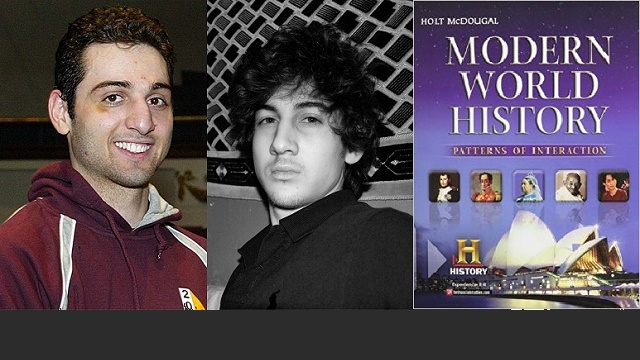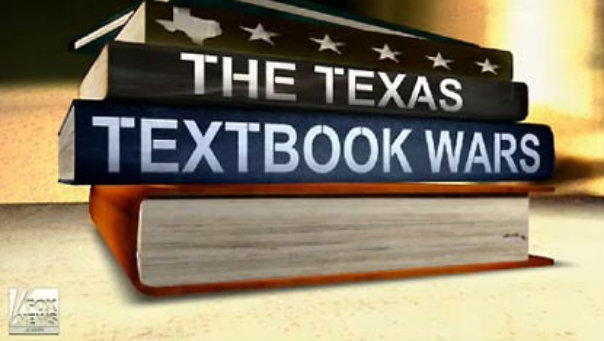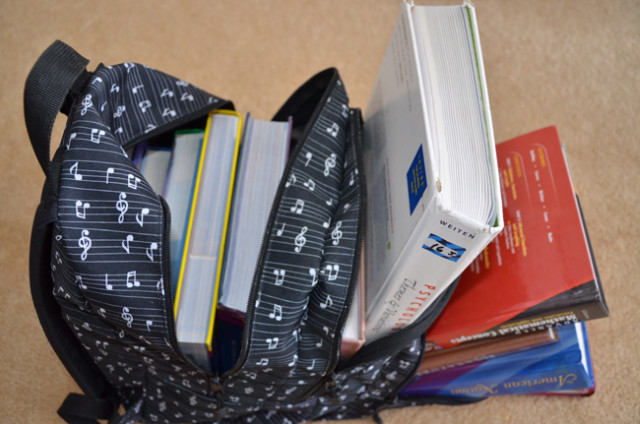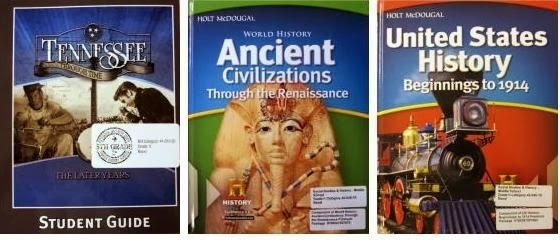In just six months, the state of Texas will adopt new social studies textbooks and educational materials for its five million students. Approximately 50 new textbooks and 100 workbooks, CDs, and other educational materials will be put before the Texas State Board of Education (SBOE) for approval in November. The committee’s determinations are not only essential in Texas, where the state purchases almost all educational materials for its school districts, but for the nation at large. As a bulk purchaser of over 150 million textbooks, the Texas market is substantial enough to influence the textbook publishers themselves. Major publishers align the content of textbooks offered nation-wide to comply with Texas’ requests in order to ensure their books have a place in this substantial market.
What happens in Texas does not stay in Texas, but impacts parents, teachers, and students around the nation. The textbooks that the SBOE chooses in November could very easily be on the desks in middle schools and high schools around the country in 2015. It behooves citizens across the country to pay attention to the choices Texas will make and to understand the content of the books.
So, how is Texas planning to decide which textbooks to adopt?
In January, the SBOE changed the rules for its review process to mostly exclude individuals who are not Texas teachers or professors from reviewing textbooks. The selection process has become more opaque and the standards for review unknown to those outside the process. The public only knows that reviewers will meet for a week in Austin over the summer and are instructed not to discuss the process with outsiders (including publishers). According to a Star-Telegram article, we do know that the changes are specifically designed to prevent citizens from raising controversial issues at the November hearings.
The public does not know who will be chosen to review the textbooks, the degree of scrutiny the books will face, or if the review process will even examine factual accuracy, objectivity, and overall content responsibility. Newer textbooks, especially the slew of new material now marketed under the aegis of “Common Core,” contain an alarming degree of inaccurate material and need to be scrutinized and analyzed by independent experts who are guided by honesty and objectivity. An independent review of these educational materials is crucial for students, parents, the education system, and our civic society.
Residents of Texas and other states should be alarmed that such important decisions will be made essentially “under the radar” of the citizenry. A group of citizens called “Truth in Texas Textbooks,” under the leadership of Lt. Col. Roy White is leading an effort to bring citizen input to the SBOE. This group has been planning and organizing since the fall of 2013 and is committed to making citizens’ voices heard.
At Verity Educate, we are working hard to provide parents, communities, and schools with the information they need to know about the content of these new textbooks. Our experts – independent, non-partisan scholars – review material in their specialized content areas. Textbooks are examined line-by-line for factual inaccuracies and content objectivity. The in-depth reports we compile note every error, explain biased material, and examine the impact of particular inaccuracies on students’ education. We spend up to 60 hours reviewing each book, researching the facts, and compiling reports. How can the SBOE complete a thorough review of all the textbooks in one week?
Because the state will be coming to the November hearings with reviews from its hand-picked expert panels, citizens must also arm themselves with credible, authoritative, and scholarly evidence. Some of the textbooks up for adoption will be great – factual, objective, and honest. However, other textbooks will be inaccurate, biased, and un-truthful. It is important for citizens to be informed about the content of these books before their adoption by the state of Texas and before the books come home in students’ backpacks. When parents, taxpayers, and citizens inform themselves about the content of these books they can have input with their schools boards, state boards of education, and elected representatives.
An education riddled with factual inaccuracies and biased content affects the heart of our civic society. When factual accuracy is not accounted for, students will grow into citizens lacking the most basic historical knowledge. When presented, over and over, with biased content and one-sided arguments students fail to develop critical thinking skills. The effects of a poor history education are playing out as we speak. Influential leaders bring their ignorance of key historical events like the Monroe Doctrine and the Crimean War to the attention of the world through their actions and their speech. When history is taught incorrectly, the nation suffers.
If you are interested in learning more about the content of new textbooks and efforts to ensure accuracy and objectivity, visit www.VerityEducate.org. Follow us on twitter @VerityEducate and Facebook for regular updates.





